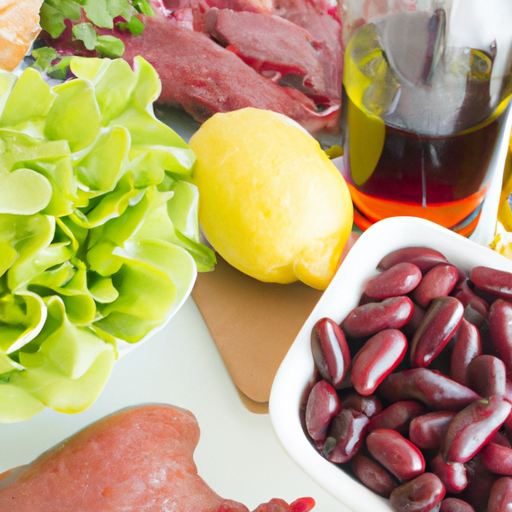Is the Mediterranean Diet Beneficial for Fatty Liver?
The Benefits of the Mediterranean Diet for Fatty Liver
The Mediterranean diet is a popular eating plan that emphasizes whole grains, fresh fruits and vegetables, healthy fats, and moderate amounts of seafood. In this article, we explore how the Mediterranean diet can help treat fatty liver and provide tips for incorporating this eating style into your routine.
Why the Mediterranean Diet is Good for Fatty Liver
The Mediterranean diet is low in saturated and trans fats, and it limits or avoids red and processed meats and dairy. Instead, it focuses on fresh whole foods and healthy oils like vegetables, fruits, legumes, extra virgin olive oil, nuts, and seafood. This diet encourages consuming healthy unrefined carbs, unlike many other popular diets that attempt to limit carbs.
Fresh Fruits and Vegetables
Research on the association between the consumption of fruits and vegetables and the risk of developing a non-alcoholic fatty liver is inconclusive. However, some studies suggest that consuming fruits and vegetables significantly reduces the possibility of developing NAFLD. Additionally, increasing your intake of fresh fruits and vegetables could reduce the chances of developing the risk factors associated with fatty liver, such as obesity and high cholesterol.
Fish and Seafood
Fish is considered a lean protein and a healthy alternative to red or processed meats. Research investigating the correlation between the intake of red or processed meats and non-alcoholic fatty liver has found that their consumption was associated with an increase in the likelihood of fatty liver as a result of increased hepatic lipid accumulation, oxidative stress, and insulin resistance. On the other hand, fish is rich in omega-3 fats and other good fats (unsaturated fatty acids).
Grains, Cereals, and Legumes
Incorporating whole grains and cereals into your diet may be beneficial for fatty liver. Research has indicated various potential mechanisms where whole grains may reduce the risk of conditions associated with non-alcoholic fatty liver diseases, such as diabetes, obesity, and cardiovascular diseases. Additionally, whole grains are rich in phytochemicals.
Olive Oil
This vegetable oil has shown benefits for many aspects of human health, particularly for helping to prevent metabolic and cardiovascular diseases. Research has found that decreasing total fat consumption and switching to monounsaturated fatty acids found in olive oil may decrease plasma lipid concentrations and fat retention in the liver, which can benefit individuals with fatty liver.
Nuts
Nuts are a crucial part of the Mediterranean diet and have shown promise in reducing certain conditions associated with NAFLD, such as cardiovascular disease, obesity, diabetes, and dyslipidemia. Studies in the general healthy population have reported that higher consumption of nuts is associated with a significant reduction in the risk of developing NAFLD.
Coffee
Moderate caffeine consumption has shown promise in exhibiting protective effects against fatty liver, progression of liver fibrosis, and damage in patients with NAFLD. This is potentially due to coffee’s anti-inflammatory, antioxidant, and insulin resistance-reducing properties.
Red Wine
Studies have suggested that modest red wine consumption may reduce the prevalence of suspected NAFLD. However, individuals with advanced-stage NAFLD with steatohepatitis or advanced fibrosis are advised to avoid all alcohol, including red wine. In contrast, those in early stage NAFLD or fibrosis may benefit from modest red wine consumption.

